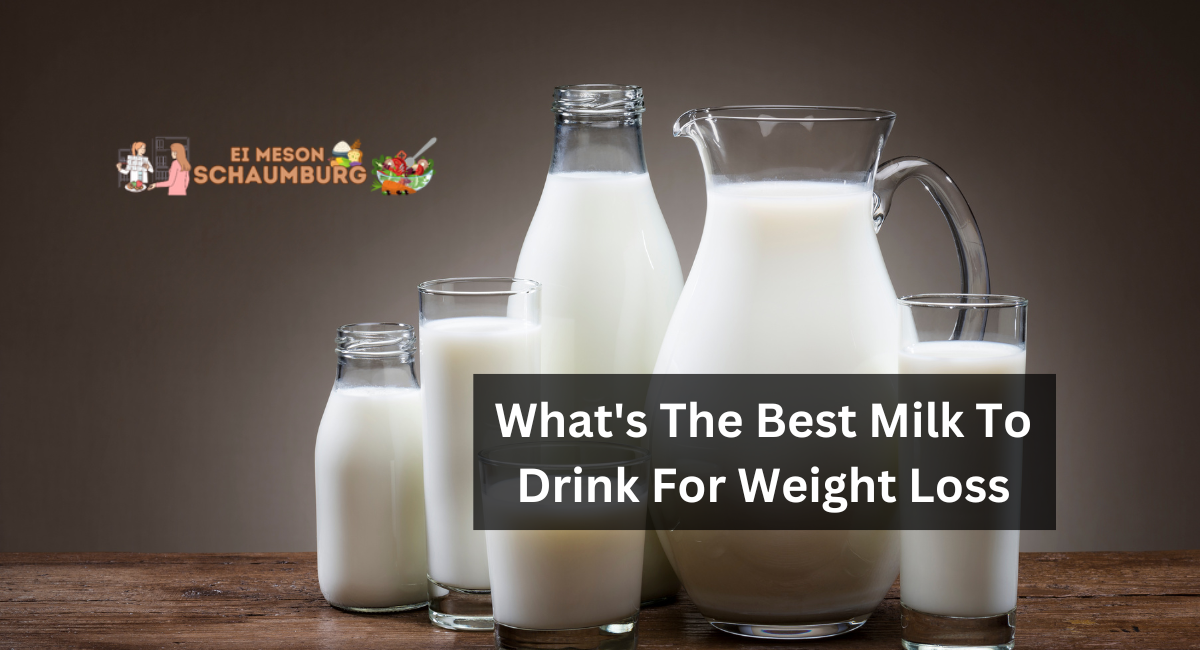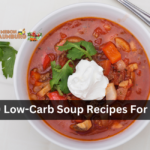Generally speaking, plant-based milk alternatives contain less protein and other nutrients than cow’s milk. However, they have fewer calories. So, what’s the best milk to drink for weight loss?
In recent years, milk and milk-alternative options have increased in dairy aisles, and selecting the healthiest milk goes beyond the fat content.
Whether seeking alternatives to cow’s milk for health or dietary reasons or to experiment with various options, you may wonder which type of milk is the healthiest.
What’s The Best Milk To Drink For Weight Loss?
Here are the seven best milk to drink for weight loss and incorporate into your diet:
1. Hemp Milk
The psychoactive element of the Cannabis sativa plant is absent from hemp milk, which is produced from ground-soaked hemp seeds.
Protein and healthful omega-3 and omega-6 unsaturated fats are abundant in the seeds. Therefore, hemp milk contains a slightly greater concentration of these nutrients than other plant milk.
A serving of hemp milk contains the following nutrients:
- Calories: 60
- Protein: 3 grams
- Carbs: 0 grams
- Fat: 5 grams
- Phosphorus: 25% of the Daily Value (DV)
- Calcium: 20% of the DV
- Magnesium: 15% of the DV
- Iron: 10% of the DV
Some brands of hemp milk add additives, thereby increasing the carbohydrate content. Check the ingredient label and purchase hemp and plant milk without added sugar.
Sugar may be listed as brown rice syrup, evaporated cane juice, or cane sugar on the ingredient label.
2. Oat Milk
Although drinking milk made from soaking whole oats does not provide the same health benefits as ingesting a bowl of whole-grain oats, it is still very nutritious.
Oat milk is inherently sweet and high in carbohydrates due to the oats. It is uncommon because it contains soluble fiber, giving oat milk a creamier texture.
During digestion, soluble fiber absorbs water and transforms into a gel, which slows digestion and keeps you satisfied for longer. Additionally, it can help stabilize blood sugar levels.
In addition, the soluble fiber in oat milk may help reduce cholesterol levels. In a 5-week study involving 52 males, the consumption of oat milk decreased LDL (bad) cholesterol levels compared to a control beverage.
The following nutrients are present in an 8-ounce (240-ml) serving of Oatly oat milk, although nutritional values can vary by brand and dependent on how or if the milk is fortified:
- Calories: 120
- Protein: 3 grams
- Carbs: 16 grams
- Fiber: 2 grams
- Fat: 5 grams
- Vitamin B12: 50% of the DV
- Riboflavin: 46% of the DV
- Calcium: 27% of the DV
- Phosphorus: 22% of the DV
- Vitamin D: 18% of the DV
- Vitamin A: 18% of the DV
3. Almond Milk
Almond milk is produced by absorbing almonds in water, blending them, and removing the particles.
It is a tasty nondairy milk alternative for those who cannot tolerate dairy milk or choose not to consume it, but it is unsafe for those with a tree nut allergy.
Almond milk without added sugar is low in calories and contains significantly fewer carbohydrates than cow’s milk, making it a great choice for those on a low-carb diet.
Note that many brands contain added sugar, however. Always read the ingredient labels and avoid sweetened foods.
Although almond milk is inherently rich in vitamin E, it is low in energy and many other nutrients. Numerous brands are fortified with calcium and vitamins A and D, but the amounts differ from brand to brand.
A typical 8-ounce (240-ml) serving of unadulterated almond milk provides the following nutrients:
- Calories: 41
- Protein: 1 gram
- Carbs: 2 grams
- Fat: 3 grams
- Vitamin E: 50% of the DV
Many brands contain additives like carrageenan to prevent separation and thicken their products.
Whether or not carrageenan promotes intestinal inflammation and injury is debatable. However, the majority of research on carrageenan and gastrointestinal health has been conducted on animals or in laboratories.
4. Coconut Milk
Coconut milk is extracted from a coconut’s white interior. It has a pleasing flavor and is a safe alternative to dairy milk for those with a tree nut allergy.
Most coconut milk sold in containers is blended with water to mimic the consistency of cow’s milk. Even less protein than almond milk, many brands are fortified with vitamins and minerals.
In contrast, tinned coconut milk is typically intended for culinary applications. It generally is higher in fat, unfortified, and has a significantly more distinct coconut flavor.
A cup of 8 ounces (240 milliliters) of unsweetened coconut milk beverage provides the following nutrients:
- Calories: 46
- Protein: none
- Carbs: 1 gram
- Fat: 4 grams
Coconut milk contains slightly more fat than other plant-based milk. Still, the medium-chain triglycerides (MCTs) in coconuts are associated with heart-health benefits, such as higher HDL (healthy) cholesterol levels.
Some brands are fortified with vitamins B12, D, and A and minerals. The type and amount of nutrients introduced can vary between brands; therefore, it is essential to compare labels.
5. Cow’s Milk
Cow’s milk is the most frequently eaten dairy milk and an excellent source of protein.
It is inherently abundant in calcium, B vitamins, and various minerals. Additionally, it is frequently fortified with vitamins A and D, making it a highly nutritious diet for children and adults.
A cup of 8 ounces (240 milliliters) of whole milk provides the following:
- Calories: 149
- Protein: 8 grams
- Carbs: 12 grams
- Fat: 8 grams
- Vitamin D: 24% of the DV
- Calcium: 28% of the DV
- Riboflavin: 26% of the DV
- Phosphorus: 22% of the DV
- Vitamin B12: 18% of the DV
- Selenium: 13% of the DV
- Potassium: 10% of the DV
Nevertheless, cow’s milk protein is a prevalent allergen. Some individuals have a lifelong allergy to milk and must avoid this beverage and foods containing milk.
In addition, approximately 65 percent of the population has trouble digesting lactose, a form of sugar in cow’s milk.
6. A2 Milk
Casein accounts for about eighty percent of the protein in cow’s milk. Most dairy cows in the United States produce A1 beta-casein and A2 beta-casein in their milk.
The digestion of A1 beta-casein produces beta-casomorphin-7 (BCM-7). It is associated with digestive symptoms similar to lactose intolerance, including flatulence, bloating, constipation, and diarrhea in some individuals.
Dairy cows only produce A2 beta-casein in their milk, which does not form the BCM-7 protein. The A2 Milk Corporation markets A2 milk as an option that is simpler to digest.
A small study involving 45 individuals with self-reported lactose intolerance revealed that A2 milk is simpler to digest and causes less discomfort than regular cow’s milk.
Except for casein, A2 milk is similar to conventional cow’s milk. Even if you are allergic to milk protein or lactose intolerant, try it if you experience mild digestive issues after consuming regular cow’s milk.
7. Soy Milk
Soy milk is nutritionally equivalent to cow’s milk. It is because soybeans are a great source of complete protein and are fortified to resemble milk’s nutritional profile.
If you avoid dairy but desire a higher-protein milk drink, soy is an excellent alternative.
A serving of unadulterated soy milk contains the following nutrients:
- Calories: 105
- Protein: 6 grams
- Carbs: 12 grams
- Fat: 4 grams
- Vitamin B12: 34% of the DV
- Calcium: 30% of the DV
- Riboflavin: 26% of the DV
- Vitamin D: 26% of the DV
- Phosphorus: 10% of the DV
As most soybeans grown in the US have been engineered to resist the herbicide glyphosate, soy has been the subject of controversy.
However, regular consumption of soy foods is associated with improved cholesterol and blood pressure levels.
All milk to drink for weight loss and milk alternatives offer various health benefits, such as lowering cholesterol, increasing antioxidant intake, and protecting against allergies and intolerances. Mixing the varieties of milk you consume may be a prudent strategy. Thus, you receive the benefits of each, mainly if you consume them alongside a wholesome, whole-food diet. Check the labels for ingredients such as added sugar or unwelcome additives, and avoid products that contain these.
Thank you for reading…..










